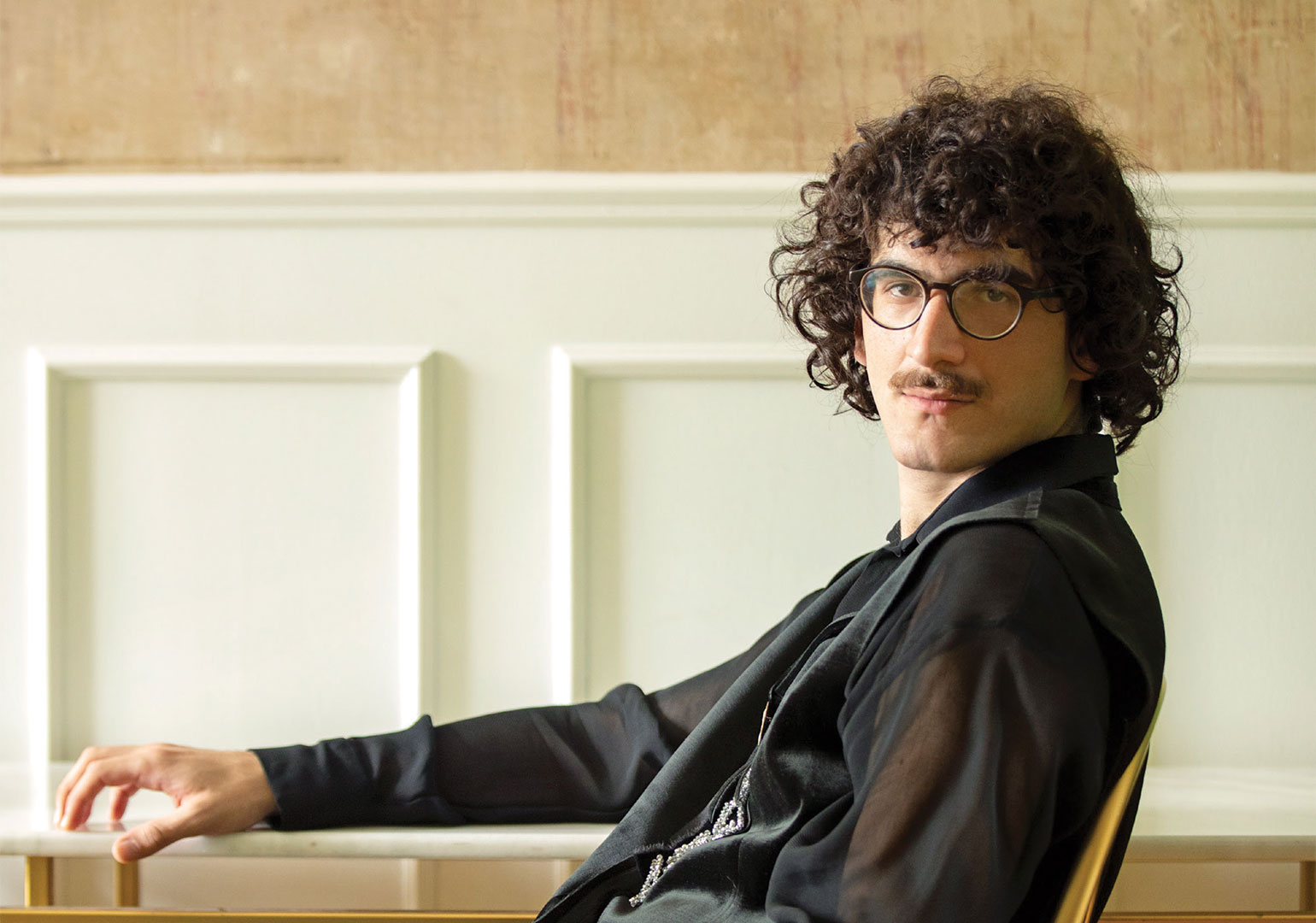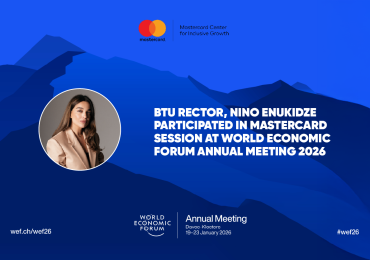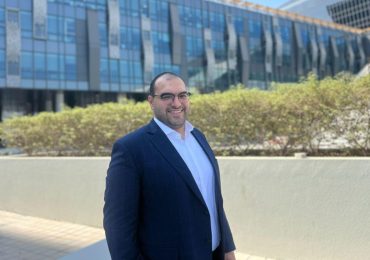In 2023, Giorgi Gigashvili won the prestigious Arthur Rubinstein International Piano Master Competition. At the age of 23, he has already established himself as a key figure in contemporary Georgian academic music and a prominent member of Forbes Georgia’s 30 Under 30 list. Pianist Nino Zhvania interviewed the young Georgian artist on behalf of Forbes Georgia.
Forbes Georgia’s 30 Under 30 project recognizes young leaders who achieve success through their knowledge, effort, and enthusiasm and help shape our country’s future. How can a successful young pianist shape Georgia’s future today?
The inclusion of a pianist in this list is especially significant because classical music does not have the same level of appreciation today as it did, for example, 50 years ago. This is very unfortunate. Classical music is dying not just in Georgia but across the world. We need to think about reorganizing it. At the risk of sounding arrogant, being at the top of this list is important to me. It means that I am doing something right. And if I do something new in a genre where people least imagine something new being done, then this recognition is doubly appreciated. Thank you very much for this.
You mentioned a crisis in classical music. The average age of listeners is increasing all over the world. Young people rarely attend classical music concerts. Against this backdrop, what do people like you need to do to improve the appeal of classical music to the younger generation?
First and foremost, you should not be constrained by the older generation. I was fortunate to have Rezo Tavadze by my side. He never stifled my creativity and told me to play how I wanted. The problem is that too many older people believe their students must play like them. Thanks to the freedom afforded to me by Rezo Tavadze, I know that as an independent pianist, I should not be bound by any framework. When I think of classical music, I do not think of it as something very old that you must treat with excessive care. When Beethoven wrote his masterpieces, they would have been considered pop music. That is what we must do today: turn classical into modern music.
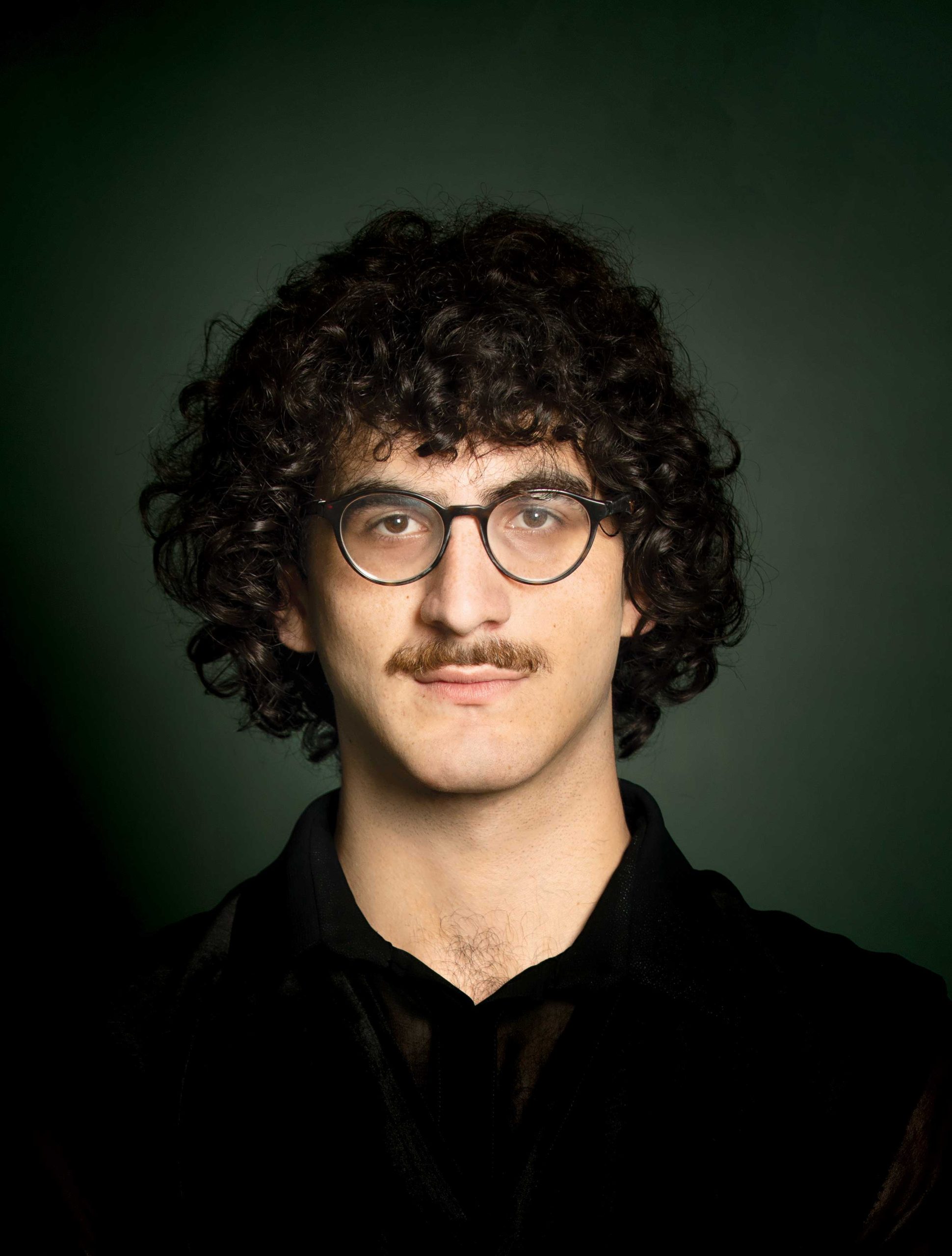
How? For example, do you put modern ideas into your interpretation of pieces of music? Do you allow the concept of the piece to be more contemporary and less conforming to the era in which the piece was written?
Last year, I gave three concerts with the same program on the same day. The concept was to illustrate how classical music can evolve and how 600 years of history can pass in a single day. I showed people that it is interesting not only to listen to music but also to watch it, understand it, and see the concept embedded in it. I thought about the lighting at the concert. I understood what I was wearing and how I would appear on stage. Attention had to be paid to everything to convey this concept clearly to the listener. The listener hears what you are playing and more when you do that. As a result, at least 50% of the audience at my concerts are young people, which makes me very happy.
Do you not agree that classical music is an elite art, as many people seem to believe?
My opinion on this issue is divided. Many people consider classical music to be elitist, and my views will not change that fact.
But are you doing something to counter this opinion?
Yes, and this is where the opposite thought comes in: if I am doing it, then why is it elitist? Ultimately, classical music is still considered elitist because that is what we have been taught. Classical music was part of the Church; then, it moved to the royal court. It has been elitist since its inception. Gen Z and Millennials are no longer interested in the elite. They do not want to be friends with the elite, nor should they want to – hierarchy is no longer necessary in the 21st century. Classical music is an art that serves humanity and expresses its thoughts. So, if someone is elitist, then who are they talking to? If people do not listen to you, do not see you, do not appreciate you, and do not want to be with you, then who are you supposed to establish contact with from the stage? That is why I try not to represent an elitist genre. I try to modernize this genre.
I really like your attitude, and I am surprised you have achieved so much success in such an elitist and tradition-steeped field as piano competitions. How did this happen? Take the Rubinstein competition, for example – a contest with so much history and tradition. How did they accept your liberal interpretations?
When I heard the jury’s evaluations, I realized the votes were divided. But no matter how much we hate these contests, the winner is probably the sincerest.
“To do my job well, I must know that our path is towards Europe and that we all agree on that.”
You won the listeners’ sympathy prize.
Even the jury panel could not resist the applause from the audience. Maybe the panel did not agree with me, but they could not go against the people inside the hall. That said, I do not know the exact formula for my success at the Rubinstein competition. I think luck also played a part. Luck is an important factor nowadays, and it probably always has been.
Maybe more so today. For example, you need luck to get lots of views on TikTok. How do people get to see your videos? How does the formula work? Whose feed will the videos appear in? It is impossible to tell. Luck is very important, and fame has become very short. Today, people remember you; tomorrow, they forget. They like what you have to offer right now, but soon they might not.
This is the primary purpose of art: when I give a concert, I want every attendee to come back tomorrow and the day after. If my emotions on the stage are genuine, then they will come back. If we are talking about art, that is how it should be.
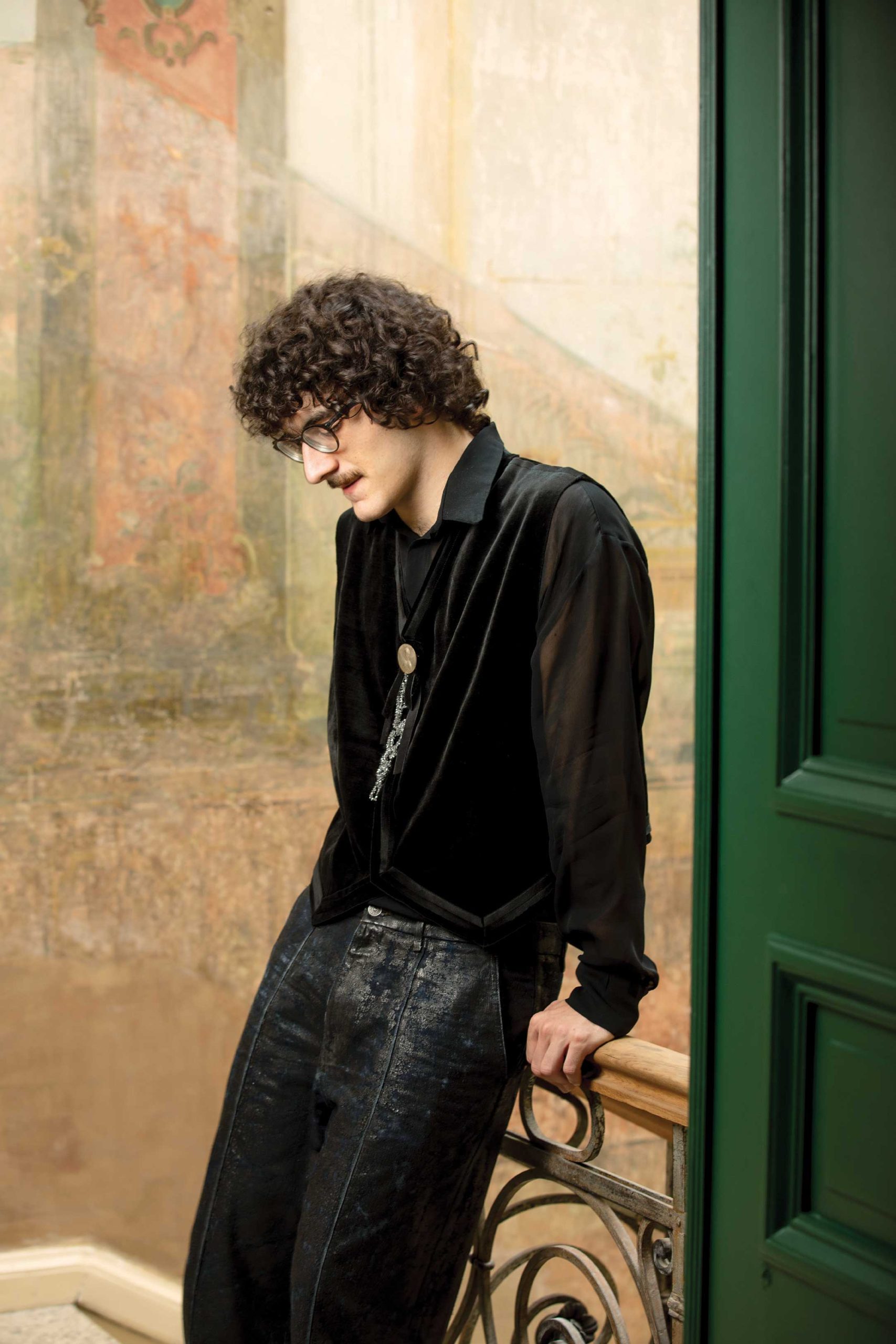
You mentioned TikTok, and interestingly, elements of pop culture are gradually creeping into classical music. It is impossible not to think about issues that have bothered professional musicians for a long time, such as people dividing music into “serious” and “fun” categories. This issue was very topical in the 20th century. Clearly, the new generation no longer recognizes such boundaries, and your career is evidence of that. One day, you are on the stage playing Rachmaninoff with a symphonic orchestra, and the next day, you are taking part in jazz jamming sessions. How do you reconcile all this?
If I have a concert playing Beethoven tomorrow and an appearance with Nini Nutsubidze next week, I will not even think about the second event before completing the first one. My mind is always focused on the next concert, not the one after that.
Do these different concerts not affect each other?
They do but in a good way. Do you know why these concerts never interfere with each other? My mother enrolled me in a folk music group when I was four. I listened to children sing in three or four voices three times a week, which prepared me for polyphonic music. So, I will put it this way: how can music interfere with music? Genres cannot interfere with each other because all these genres are music.
It is good that you mentioned your childhood and your mother. As a music teacher, I attach great importance to the parent factor. Tell us about your path from music school to the world’s leading stages. Who led this process? Your parents? Teachers?
Without sticking to chronology, I will tell you who is at the top of the pyramid for me: Rezo Tavadze. Naturally, other people helped me along the way. It is thanks to my mother that I play at all. Without her, I would not have started hitting piano keys when I was five years old. I did not enjoy practicing as a child. I was 15 or 16 when I started enjoying it, and that is when I realized I could become a pianist.
What do you mean by enjoying practicing?
People will be interested to know how many hours you would spend playing the instrument. I realize you are asking me what people want to know, but I do not think it is the right question. It is not about the hours. I fell in love with the process. I may have only spent one hour practicing a particular piece one day, but I would be fully involved and engaged throughout this hour. That is still the case today. I do not spend six or seven hours at a time with the instrument.
And yet, there are legends about pianists who practice for eight or nine hours…
I envy them. If they can play for such a long time and remain fully switched on throughout this process, then I truly envy them. I cannot do that, as I do not have the willpower for it. When my brain gets tired, I have to stop playing.
No need to be envious. Arthur Rubinstein, one of the all-time greatest pianists, always said spending many hours with the instrument is unnecessary. On the contrary, you must learn about life because your performance must express your life. This is a rather loose interpretation of his quote.
Rezo Tavadze used to say the same, even though he had students who would practice for 8 or 9 hours. It is not a legend. People do play for that long, and it is good that they love their work so much. But it does not mean I do not love my work; I just have different methods. For example, I prefer to pick up music sheets and look at them instead of playing. When I was learning Beethoven’s Sonata No. 30, Rezo Tavadze advised me not to listen to other people’s interpretations but to study how conductors directed Beethoven’s symphonies. I had to learn how to think rather than how to play. In another example, when I was learning Beethoven’s Sonata No. 17, Mr. Tavadze advised me to read Shakespeare’s The Tempest. It was the right approach. We must learn how to work our minds, not just our fingers. Anyone can learn how to play, but the most remarkable pianists are those who can think.
You probably do not even have time to practice for eight or nine hours, as you are actively involved in the political sphere in Georgia. I still remember being shocked at seeing you at one of the rallies a few days before you were due to participate in the Rubinstein competition. I remember begging you to go home and practice. You stayed, then went straight from the rally to the competition and won. I get very annoyed when we, as artists, are told to play, sing, and write but stay out of politics, as it does not concern us. You are an example of someone who can have a successful career while actively participating in political events.
I cannot do my job if I am not calm. To do my job well, I must know that our path is towards Europe and that we all agree on that. I can no longer devote enough time to music because I want us to have a bright future, and I keep thinking about it. If my future, and that of my country, is threatened, then music no longer interests me, however difficult that might be to understand. Why would I play at all? I have never played abroad like I do here at home. Whatever I could tell my audience in Berlin, I could never make them understand how I can make Georgian audiences understand. My mentality changes when I am in Georgia. How am I supposed to practice? How can I concentrate on my work when my country’s future is up in the air? People who criticize me for it are usually those who have nothing else to do. Those who are good at their jobs know precisely why I am standing at the rallies.
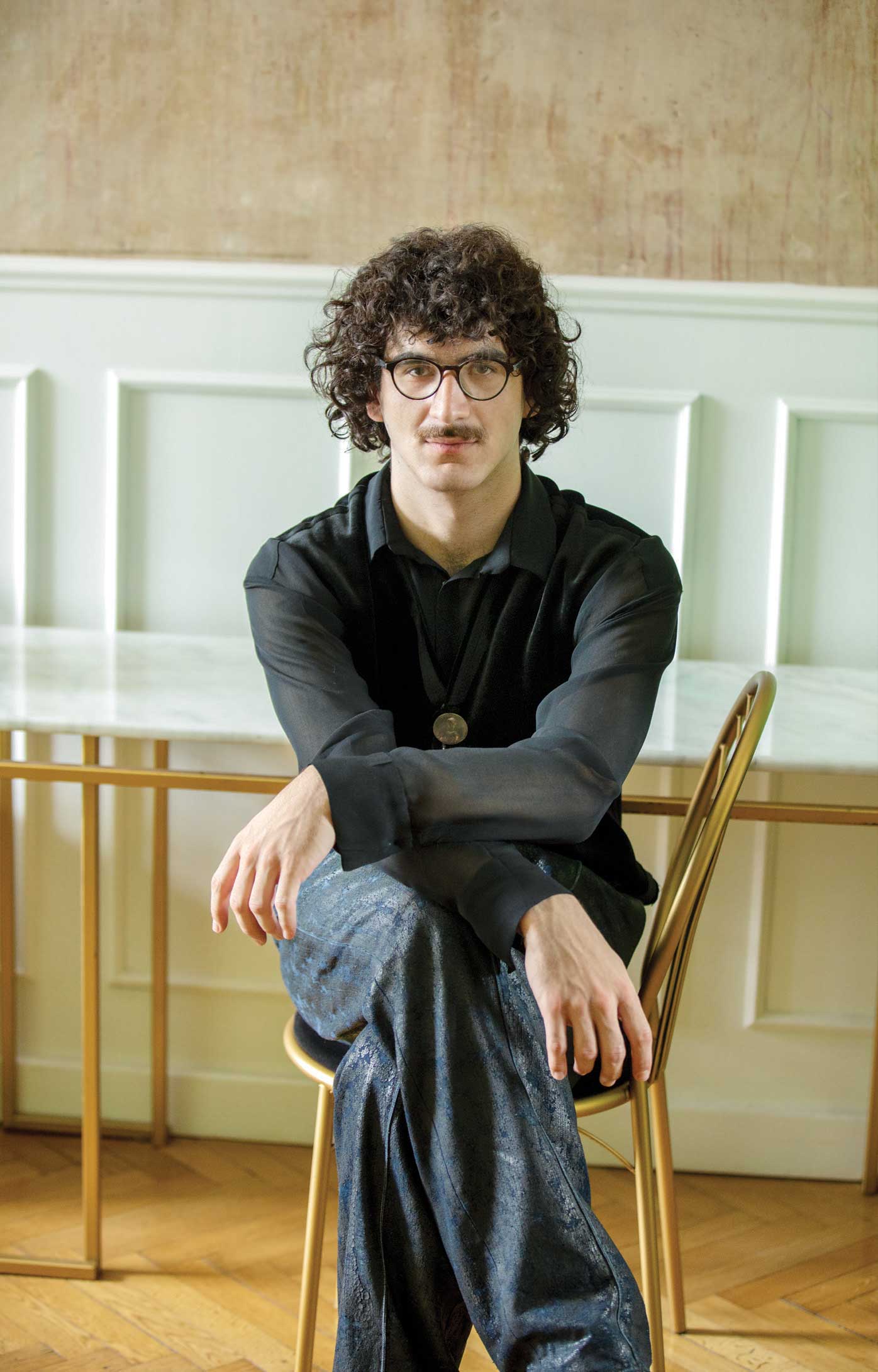
What are your expectations as an artist? What awaits us in the coming months, and where are we headed?
Towards Europe!
I contend that we, as musicians, have been part of Europe for a long time. If there is a pure European phenomenon, then it is classical music. As soon as it became part of Georgia, we became part of Europe. We assimilated very easily and quickly, which indicates that classical music is a natural part of our culture. Now, we must do everything we can to ensure that everyone becomes part of Europe.
Between the 19th century and the 1950s, Georgian composers traveled the same path European composers traveled for 500-600 years. And if they would not want to be part of Europe, then who would? Our development and all other positive things are linked to Europe. I will never understand how people can fight this idea and not love their own citizens. All links between us and them are lost. They do not understand us, and we do not understand them. Today, there is no connection between our government and the people. It is unbelievable how the government cannot love its own people.
You are an example to many children who are thinking about becoming musicians. You are exemplary both in your civic stance (we see the youth protesting at the rallies) and in the principles on which you have built such a successful career. What advice do you have for young girls and boys just starting on the path you took twenty years ago?
You know, nobody ever gave me advice. Nobody put me in a box and told me how to act, which is good. Everybody in our field of work has their own path. I hate to even compare two pianists with each other. The only advice I can give to a musician is for them to play the way they think is right. They will encounter many obstacles, as I did when I realized some of my interpretations and approaches were wrong. Many things are learned by trial and error rather than by following someone’s advice. You will realize everything for yourself.
Location: Hotel „UNFOUND DOOR“

